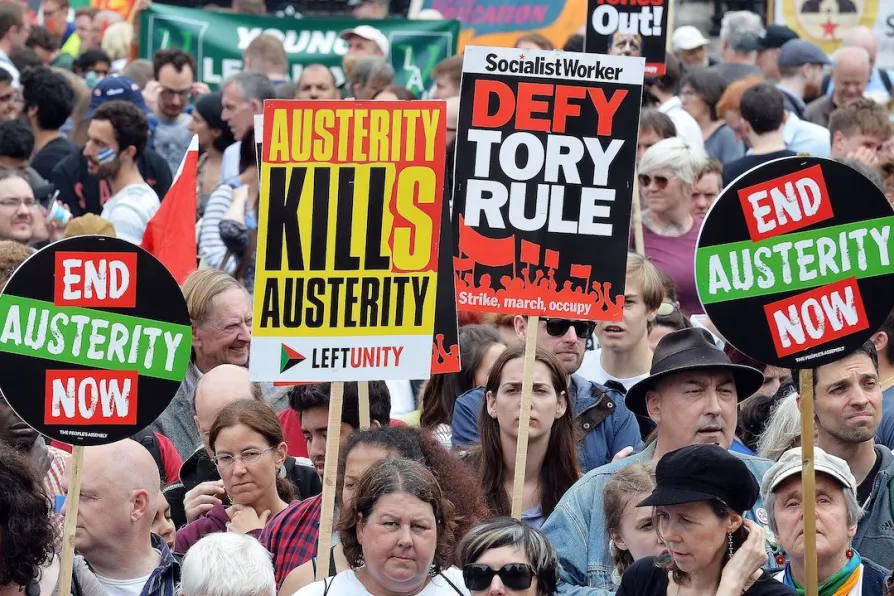
 Download your paper below
Download your paper below
THE Tories’ austerity policies have made an “important and substantial” contribution to mortality rates stagnating during their time in power, researchers said today.
The annual number of recorded deaths decreased year on year throughout the 20th century, except in times of war or pandemic, but the rate began to stagnate around 2012.
When adjusted for population, Britain’s mortality rates then ceased to fall as quickly as in previous years, with the poorest being hit hardest by the changes.
A report by Glasgow University and the Glasgow Centre for Population Health, using already available studies, suggested that government spending cuts in the wake of the 2008 financial crash had contributed to the stagnation.
The researchers also made 40 recommendations to address the issue, including a commitment not to institute austerity policies in the future, an increase in benefits and a crackdown on tax evasion and avoidance.
“Austerity is evidenced as making an important and substantial causal contribution and is likely to underpin a number of the other observed changes,” the report said.
“Austerity is highly likely to be the most substantial causal contributor to the stalled mortality trends seen in Scotland and across the UK (and more tentatively across other high-income countries).”
Lead author Gerry McCartney, a professor of wellbeing economy at Glasgow University, said the recommendations were prescient given the recovery from the pandemic.
“At a time when we are witnessing an escalating cost-of-living crisis and when decisions and policy choices are being made about pandemic recovery and rebuilding the economy, now is the time to listen to the evidence and implement these solutions that will support, rather than damage, population health,” he said.
“Any further austerity policies that squeeze public spending will have disastrous long-term impacts on population health and result in more and more lives cut short. We cannot allow that.”
Report co-author Dr David Walsh said the stagnation in mortality rates “should simply not be happening in a wealthy society such as the UK.”
He said: “The evidence shows they are principally the result of UK government austerity policies that have squeezed billions of pounds from public services and social security and have had a devastating impact on the lives of so many in our communities.”
Poverty Alliance research manager Fiona McHardy said that the research provides “hard evidence on the devastating impact of austerity.”
She told the Morning Star: “In a compassionate society like ours, we believe in looking after one another and protecting each other from harm.
“But this stark evidence shows that our failure to do so has long-lasting and fatal implications.
“Through austerity, we eroded the support people need to live a dignified life.
“That erosion meant that we were less prepared for Covid when it struck.
“We need to learn the lesson from our experience of austerity and Covid as we respond to the cost-of-living crisis.”
Ms McHardy called for an urgent increase in investment in the social security system to help keep people afloat and for the protection of public services.
A government spokesman said that the new health and care levy will raise £12 billion a year to invest in health services by 2024.
“Tackling health disparities is a priority for the government,” he said.

Farage's promise to remove two-child benefit cap for British families by cutting asylum-seeker accommodation and net zero projects branded ‘absurd’

Exempting military expenditure from austerity while slashing welfare represents a fundamental misallocation of resources that guarantees continued decline, argues MICHAEL BURKE




![Extinction Rebellion activists protest outside the headquarters of fossil fuel firm Perenco, London, May 29, 2025 [Pic: Will Colebourne]]( https://dev.morningstaronline.co.uk/sites/default/files/styles/low_resolution/public/2025-05/willcolebourne_03.jpeg.webp?itok=LfCbtEi8)










